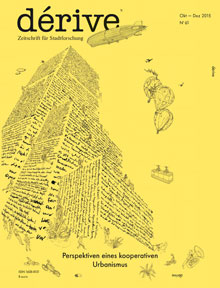magna in Sekulic 2015
of institutional arrangement for governing the
use and disposition of resources. Their salient characteristic, which defines
them in contradistinction to property, is that no single person has exclusive
control over the use and disposition of any particular resource. Instead,
resources governed by commons may be used or disposed of by anyone among some
(more or less defined) number of persons, under rules that may range from
"anything goes" to quite crisply articulated formal rules that are effectively
enforced.
> (Benkler 2003: 6)
The above definition of commons, from the seminal paper "The political economy
of commons" by Yochai Benkler, addresses any type of commons, whether analogue
or digital. In fact, the concept of commons entered the digital realm from
physical space in order to interpret the type of communities, relationships
and production that started to appear with the development of the free as
opposed to the proprietary. Peter Linebaugh charted in his excellent book
_Magna Carta Manifesto_ , how the creation and development of the concept of
commons were closely connected to constantly changing relationships of people
and communities to the physical space. Here, I argue that the concept was
enriched when it was implemented in the digital field. Readdressing urban
space through the lens of digital commons can enable another imagination and
knowledge to appear around urban commons.
[](http://www.derive.at/)The
notion of commons in (urban) space is often complicated by archaic models of
organization and management - "the pasture we knew how to share". There is a
tendency to give the impression that the solution is in reverting to the past
models. In the realm of digital though, there is no "pasture" from the Middle
Ages to fall back on. Digital commons had to start from scratch and define its
own protocols of production and reproduction (caring and sharing). Therefore,
the digital commons and free software community can be the one to turn to, not
only for inspiration and advice, but also as a partner when addressing
questions of urban commons. Or, as Marcell Mars would put it "if we could
start again with (regulating and defining) land, knowing what we know now
about digital networks, we could come up with something much better and
appropriate for today's world. That property wouldn't be private, maybe not
even property, but something else. Only then can we say we have learned
something from the digital" (2013).
## Enclosure as the trigger for action
The moment we turn to commons in relation to (urban) space is the moment in
which the pressure to privatize public space and to commodify every aspect of
urban life has become so strong that it can be argued that it mirrors a moment
in which Magna Carta Libertatum was introduced to protect the basic
reproduction of life for those whose sustenance was connected to the common
pastures and forests of England in the thirteenth century. At the end of the
twentieth century, urban space became the ultimate commodity, and increasing
privatization not only endangered the reproduction of everyday life in the
city; the rent extraction through privatized public space and housing
endangered bare life itself. Additionally, the cities' continuous
privatization of its amenities transformed almost every action in the city, no
matter how mundane - as for example, drinking a glass of water from a tap -,
into an action that creates profit for some private entity and extracts it
from the community. Thus every activity became labour, which a citizen-worker
is not only alienated from, but also unaware of. David Harvey's statement
about the city replacing the factory as a site of class war seems to be not
only an apt description of the condition of lif
How Social Production
Transforms Markets and Freedom_. New Haven: Yale University Press.
Brecht, Bertolt (2000): "The radio as a communications apparatus". In: _Brecht
on Film and Radio_ , edited by Marc Silberman. Methuen, 41-6.
Coleman, E. Gabriella (2012): _Coding Freedom: The Ethics and Aesthetics of
Hacking_. Princeton University Press / Kindle edition.
Hardt, Michael and Antonio Negri (2005): _Multitude: War and Democracy in the
Age of Empire_. Penguin Books.
Hardt, Michael and Antonio Negri (2011): _Commonwealth_. Belknap Press of
Harvard University Press.
Harvey, David (2012): The Art of Rent. In: _Rebel Cities: From the Right to
the City to the Urban Revolution_ , 1st ed. Verso, 94-118.
Hill, Benjamin Mako (2012): Freedom for Users, Not for Software. In: Bollier,
David & Helfrich, Silke (Ed.): _The Wealth of the Commons: a World Beyond
Market and State_. Levellers Press / E-book.
Lessig, Lawrence (2012): _Code: Version 2.0_. Basic Books.
Linebaugh, Peter (2008): _The Magna Carta Manifesto: Liberties and Commons for
All_. University of California Press.
Mars, Marcell (2013): Interview by Dubravka Sekulic.
Mars, Marcell and Tomislav Medak (2004): "Both devil and gnu",
[www.desk.org:8080/ASU2/newsletter.Zarez.N5M.MedakRomicTXT.EnGlish](http://www.desk.org:8080/ASU2/newsletter.Zarez.N5M.MedakRomicTXT.EnGlish).
Martin, Reinhold (2013): "Public and common(s): Places: Design observer",
[placesjournal.org/article/public-and-
commons](https://placesjournal.org/article/public-and-commons).
Meretz, Stefan (2010): "Commons in a taxonomy of goods", [keimform.de/2010
/commons-in-a-taxonomy-of-goods](http://keimform.de/2010/commons-in-a
-taxonomy-of-goods/).
Mitrasinovic, Miodrag (2006): _Total Landscape, Theme Parks, Public Space_ ,
1st ed. Ashgate.
Moglen, Eben (1999): "Anarchism triumphant: Free software and the death of
copyright", First Monday,
[firstmonday.org/ojs/index.php/fm/article/view/684/594](http://firstmonday.org/ojs/index.php/fm/article/view/684/59
Display 200 300 400 500 600 700 800 900 1000 ALL characters around the word.